第14章 CHAPTER V(2)
Duane looked around him for a book or paper, anything to read;but all the printed matter he could find consisted of a few words on cartridge-boxes and an advertisement on the back of a tobacco-pouch. There seemed to be nothing for him to do. He had rested; he did not want to lie down any more. He began to walk to and fro, from one end of the room to the other. And as he walked he fell into the lately acquired habit of brooding over his misfortune.
Suddenly he straightened up with a jerk. Unconsciously he had drawn his gun. Standing there with the bright cold weapon in his hand, he looked at it in consternation. How had he come to draw it? With difficulty he traced his thoughts backward, but could not find any that was accountable for his act. He discovered, however, that he had a remarkable tendency to drop his hand to his gun. That might have come from the habit long practice in drawing had given him. Likewise, it might have come from a subtle sense, scarcely thought of at all, of the late, close, and inevitable relation between that weapon and himself.
He was amazed to find that, bitter as he had grown at fate, the desire to live burned strong in him. If he had been as unfortunately situated, but with the difference that no man wanted to put him in jail or take his life, he felt that this burning passion to be free, to save himself, might not have been so powerful. Life certainly held no bright prospects for him. Already he had begun to despair of ever getting back to his home. But to give up like a white-hearted coward, to let himself be handcuffed and jailed, to run from a drunken, bragging cowboy, or be shot in cold blood by some border brute who merely wanted to add another notch to his gun--these things were impossible for Duane because there was in him the temper to fight. In that hour he yielded only to fate and the spirit inborn in him. Hereafter this gun must be a living part of him.
Right then and there he returned to a practice he had long discontinued--the draw. It was now a stern, bitter, deadly business with him. He did not need to fire the gun, for accuracy was a gift and had become assured. Swiftness on the draw, however, could be improved, and he set himself to acquire the limit of speed possible to any man. He stood still in his tracks; he paced the room; he sat down, lay down, put himself in awkward positions; and from every position he practiced throwing his gun--practiced it till he was hot and tired and his arm ached and his hand burned. That practice he determined to keep up every day. It was one thing, at least, that would help pass the weary hours.
Later he went outdoors to the cooler shade of the cottonwoods.
From this point he could see a good deal of the valley. Under different circumstances Duane felt that he would have enjoyed such a beautiful spot. Euchre's shack sat against the first rise of the slope of the wall, and Duane, by climbing a few rods, got a view of the whole valley. Assuredly it was an outlaw settle meet. He saw a good many Mexicans, who, of course, were hand and glove with Bland. Also he saw enormous flat-boats, crude of structure, moored along the banks of the river. The Rio Grande rolled away between high bluffs. A cable, sagging deep in the middle, was stretched over the wide yellow stream, and an old scow, evidently used as a ferry, lay anchored on the far shore.
The valley was an ideal retreat for an outlaw band operating on a big scale. Pursuit scarcely need be feared over the broken trails of the Rim Rock. And the open end of the valley could be defended against almost any number of men coming down the river. Access to Mexico was easy and quick. What puzzled Duane was how Bland got cattle down to the river, and he wondered if the rustler really did get rid of his stolen stock by use of boats.
Duane must have idled considerable time up on the hill, for when he returned to the shack Euchre was busily engaged around the camp-fire.
"Wal, glad to see you ain't so pale about the gills as you was," he said, by way of greeting. "Pitch in an' we'll soon have grub ready. There's shore one consolin' fact round this here camp.""What's that?" asked Duane.
"Plenty of good juicy beef to eat. An' it doesn't cost a short bit.""But it costs hard rides and trouble, bad conscience, and life, too, doesn't it?""I ain't shore about the bad conscience. Mine never bothered me none. An' as for life, why, thet's cheap in Texas.""Who is Bland?" asked Duane, quickly changing the subject.
"What do you know about him?"
"We don't know who he is or where he hails from," replied Euchre. "Thet's always been somethin' to interest the gang. He must have been a young man when he struck Texas. Now he's middle-aged. I remember how years ago he was soft-spoken an' not rough in talk or act like he is now. Bland ain't likely his right name. He knows a lot. He can doctor you, an' he's shore a knowin' feller with tools. He's the kind thet rules men.
Outlaws are always ridin' in here to join his gang, an' if it hadn't been fer the gamblin' an' gun-play he'd have a thousand men around him.""How many in his gang now?"
"I reckon there's short of a hundred now. The number varies.
Then Bland has several small camps up an' down the river. Also he has men back on the cattle-ranges.""How does he control such a big force?" asked Duane.